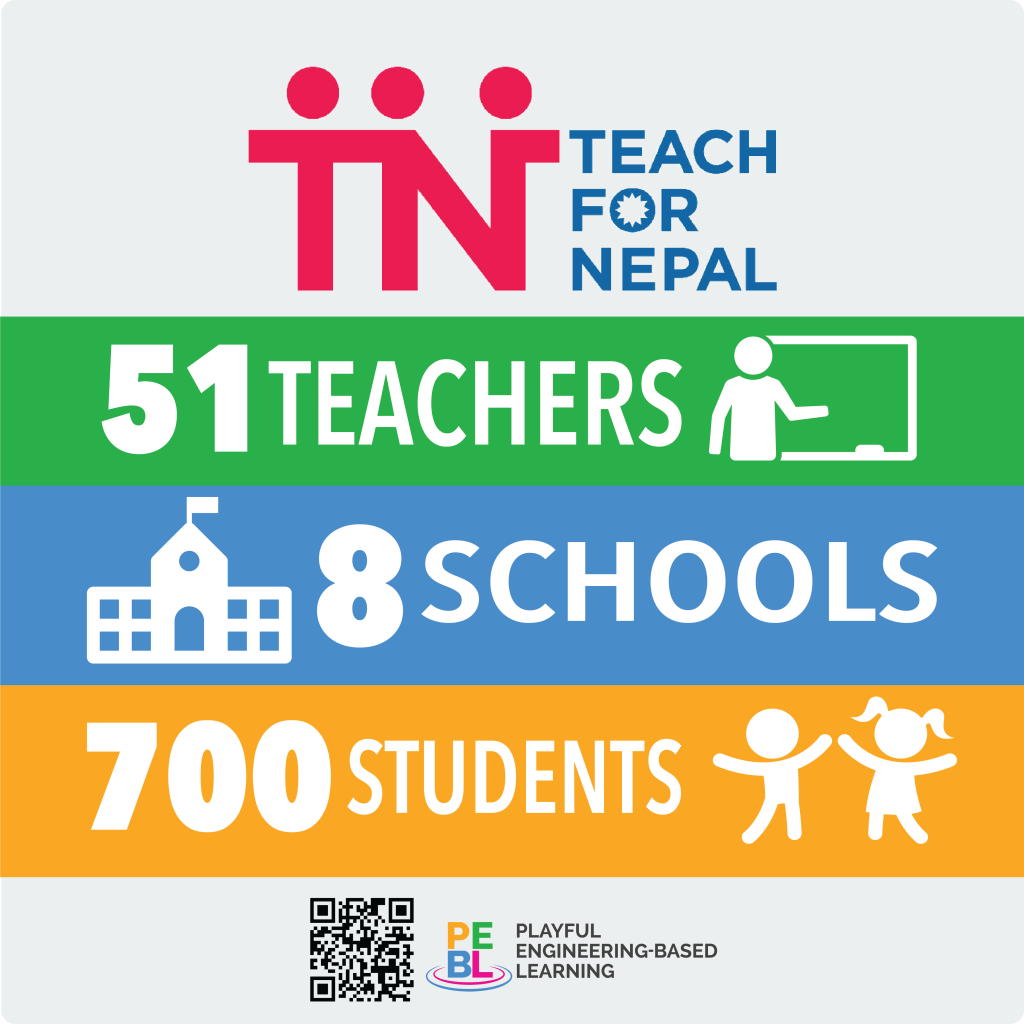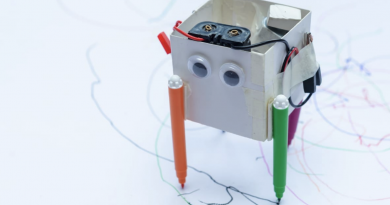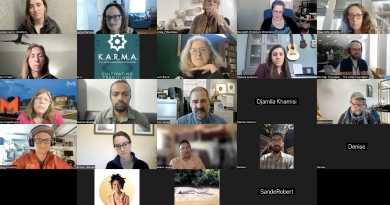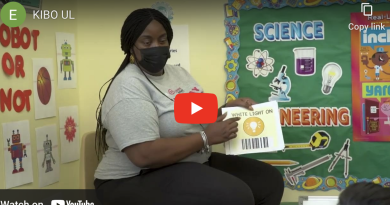Teach for Nepal Brings Playful Engineering-Based Learning to over 700 Students
Teach For Nepal (TFN) is a non-profit focused on ending educational inequity across Nepal. They recruit recent university graduates and young professionals to teach for a two-year fellowship. Fellows are trained to teach and then placed in rural public schools. With the Playful Engineering-Based Learning (PEBL) grant, TfN trained 51 TfN fellows to implement hands-on learning and supplied 8 schools with materials to establish their own makerspaces. As a result, over 700 students have engaged in PEBL to date.
TfN selected eight schools for makerspaces based on criteria that would help ensure success, including internet access, available physical space, teacher interest, and administrative support. The deployment of makerspace materials occurred in two phases. The first phases included arts and crafts materials, electronics, and tools. The second phase was driven by student interest and featured more advanced materials like programming boards and sensors.
Fifty-one teachers participated in PEBL training as part of their TfN fellow training. They engaged in hands-on making activities and discussed ways to incorporate the makerspace into their classes. A Community of Practice (CoP) was established to provide ongoing support through weekly meetings and virtual collaboration. Tufts faculty and students offered virtual office hours to the CoP and a Tufts consultant led an ongoing professional development to help teachers learn to use talk moves to trigger students’ thinking.
Around 700 students utilized the PEBL makerspaces during the two year PEBL project. The students’ work was showcased in two very successful PEBL exhibitions. Forty-nine teams of three students participated in the exhibitions. They used the skills they learned in their makerspaces to design and build something with the materials that were provided which ranged from craft materials to electronics. Most chose to build something to solve environmental problems, like a water filtration system. When their projects were complete, more than 500 people gathered to see the students work.
To help ensure long-term sustainability of the makerspaces, key stakeholders from TfN have had discussions regarding supporting the makerspaces and continuing PEBL training for TfN teachers in the future. Meetings with TfN content leads resulted in agreements to incorporate PEBL principles into lessons across various subjects. The hope is that many more children experience the joy of learning through making.




